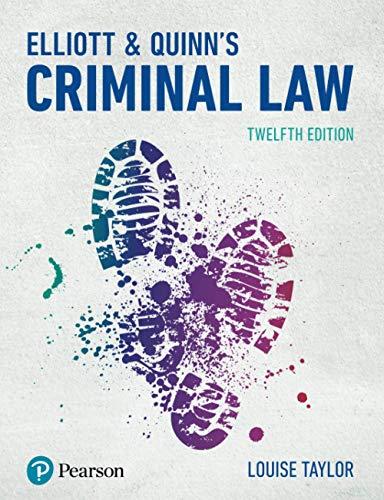Question
Please reply to the issue, facts, rule of law, application and conclusion by using the the text below. HERRING V. United States Issue: What overarching
Please reply to the issue, facts, rule of law, application and conclusion by using the the text below.
HERRING V. United States
Issue: What overarching issue was the court addressing or resolving (one questions not a paragraph just one sentence encapsulating)
Facts: What are the facts that the court described and cared about?
facts section should only include the actual facts of the case.
Rule of Law:What rule please mention the statue, case, legal principle mentioned in the images, did the court apply
*rule of law segment should only include the actual statutes, constitutional amendments or cases the Court applies the facts
Application- how did the court apply the rule to the facts?
*application section should be how the Court applied the facts to the law
Conclusion: what result did the court reach and WHY?
[On July 7, 2004, Investigator Mark Anderson learned that Bennie Dean Herring had driven to the Coffee County Sheriff's Department to retrieve something from his impounded truck. Herring was no stranger to law enforcement, and Anderson asked the county's warrant clerk, Sandy Pope, to check for any outstanding warrants for Herring's arrest. When she found none, Anderson asked Pope to check with Sharon Morgan, her counterpart in neighboring Dade County. Her counterpart initially reported the existence of an outstanding warrant for Herring's arrest, but moments later, called back to say that the initial report was inaccurate. The warrant has been recalled five months earlier but the police department database had riot been updated to reflect this fact. By this time, Herring had already been arrested, searched and methamphetamine had been found in his possession. He was indicated for illegal possession of drugs which he moved to suppress as the fruits of an illegal arrest. The trial judge denied the motion under the good faith exception to the exclusionary rule.]
Chief Justice Roberts, Opinion of the Court
TheFourth Amendmentforbids "unreasonable searches and seizures," and this usually requires the police to have probable cause or a warrant before making an arrest. What if an officer reasonably believes there is an outstanding arrest warrant, but that belief turns out to be wrong because of a negligent bookkeeping error by another police employee? The parties here agree that the ensuing arrest is still a violation of theFourth Amendment, but dispute whether contraband found during a search incident to that arrest must be excluded in a later prosecution.

Step by Step Solution
There are 3 Steps involved in it
Step: 1

Get Instant Access to Expert-Tailored Solutions
See step-by-step solutions with expert insights and AI powered tools for academic success
Step: 2

Step: 3

Ace Your Homework with AI
Get the answers you need in no time with our AI-driven, step-by-step assistance
Get Started


